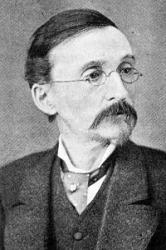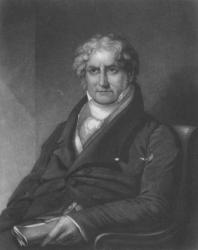Planning worship?
Check out our sister site, ZeteoSearch.org,
for 20+ additional resources related to your search.
- |
User Links
Person Results
Fred Bock
1939 - 1998 Arranger of vs. 3 harmony of "MADRID" in Hymns for the Family of God Fred Bock was born in Great Neck, New York. He played the piano at age six and organ at age twelve. He attended Ithaca College, receiving his B.A. in Music Education. He earned his Masters and did Doctoral work in Church Music at the University of Southern California. Fred Bock was one of the most recognized and respected leaders in the world of church music. He was an accomplished composer, arranger, clinician, studio musician, organist, pianist, choral director and music publisher. He was the founder and director of publications for the music publishing division of Word, Inc. and later started Gentry Publication and other publishers of church music. He was also minister of music at Hollywood Presbyterian Church, where he served for 18 years. Before that, he served as minister of music at Bel Air Presbyterian Church in Los Angeles for 14 years.
Bock has over 600 compositions and arrangements in print.
N.N., Hymnary. More information at https://www.songsandhymns.org/people/detail/fred-bock
Fred Bock
David Evans
1874 - 1948 Arranger of "[Come, Christians, join to sing]" in Hymns of Faith David Evans (b. Resolven, Glamorganshire, Wales, 1874; d. Rosllannerchrugog, Denbighshire, Wales, 1948) was an important leader in Welsh church music. Educated at Arnold College, Swansea, and at University College, Cardiff, he received a doctorate in music from Oxford University. His longest professional post was as professor of music at University College in Cardiff (1903-1939), where he organized a large music department. He was also a well-known and respected judge at Welsh hymn-singing festivals and a composer of many orchestral and choral works, anthems, service music, and hymn tunes.
Bert Polman
David Evans
W. E. Hickson
1803 - 1870 Person Name: William E. Hickson Author of "Come, Christians, Join to Sing" in Psalms and Hymns to the Living God William Edward Hickson [also known as Richman Hopson] United Kingdom 1803-1870. Born at London, England, the son of a boot maker, he studied at schools in Germany and the Netherlands. In 1830 he married Jane Brown. He became a businessman and an educational writer, retiring from his business in his late 30s to concentrate on philanthropic pursuits, particularly the cause of elementary education. He authored six books on various business and social topics. Of Baptist faith and having musical interest he authored: “The singing master” (1836), “Dutch & German schools” (1840), “Part singing” (1842), “Time and faith” (2 volumnes-1857), and “Try again”. In 1839 he visited North Germany, the Netherlands and Belgium to study the national school systems of those countries and provided the outlines of a scheme to adopt educational practices found in those countries considered superior. He was proprietor and editor of the Westminster Review” (1840-1852, noted for its commitment to legislative reform and popular education. He published his findings of the education study. In 1840 he looked into the unemployed handloom weavers situation in Great Britain and Ireland and prepared a report of his findings, recommending repeal of the corn laws and improving the educational system. He wrote part of the Official Peace Version of the British national anthem, approved by the Privy Council. He died at Fairseat, Sevenoaks, Kent, England. His published motto: If at first you don’t succeed, try, try again.
John Perry
===============
Hickson, William Edward, son of William Hickson, boot manufacturer, of Smithfield, London, was b. Jan. 7, 1803; retired from business 1840; d. March 22,1870, at Fairseat, Sevenoaks, Kent. Three pieces from his Singing Master, 1836, have come into somewhat extensive use.
1. God bless our native land (p. 1566, ii.)
2. Join now in praise, and sing. [Praise to God.] 1836, as above (ed. 1840, pt. v., No. 62). It was rewritten by the Rev. C. H. Bateman as "Come, children, join to sing " (p. 244, ii.).
3. Now to heav'n our cry [prayers] ascending, God spead the right . [National.] 1836, as above (reprint on cards, No. 85). This is repeated in W. B. Bradbury's Young Melodist, 1845, p. 122, and many later American books.
With regard to "God bless our native land," we find that in the 1st ed. of the Singing Master, 1836, Hickson's hymn was in 3 stanzas only (p. 1566, ii.). [Rev. James Mearns, M.A.]
--John Julian, Dictionary of Hymnology, New Supplement (1907)
W. E. Hickson
Anonymous
Composer of "MADRID " in The Cyber Hymnal In some hymnals, the editors noted that a hymn's author is unknown to them, and so this artificial "person" entry is used to reflect that fact. Obviously, the hymns attributed to "Author Unknown" "Unknown" or "Anonymous" could have been written by many people over a span of many centuries.
Anonymous
Christian H. Bateman
1813 - 1889 Author of "Come, Christians, Join to Sing" in Hymns of Faith Bateman, Christian Henry, son of John Bateman, was born Aug. 9, 1813, at Wyke, near Halifax. After studying in the Moravian Church and exercising his ministry there for a time, he became, in 1843, minister of Richmond Place Congregational Church, Edinburgh. After 1846 he was successively Congregational minister at Hopton, in Yorkshire, and Beading, in Berkshire. On taking Holy Orders in the Church of England he became, 1869-71, curate of St. Luke's, Jersey, and Chaplain to the Forces; 1871-75, Vicar of All Saints, Childshill, Middlesex; 1877-84, curate of St. John's, Penymynydd, Hawarden. His hymns appeared mainly in:—
The Sacred Song Book (Edin., Gall & Inglis, subsequently published as Sacred Melodies for Children; and as 200 Sacred Melodies for Sunday Schools and Families, was edited by himself, with the Rev. James Gall, and latterly with Mr. Robert Inglis, the publisher. First pub. 1843 as 25; enlarged by a second part, 1846, to 60; revised and enlarged, 1854, to 80; 1862, to 130; and 1872, to 200; it reached a circulation of a million and a half before 1862, four millions before 1872, and above six millions before 1881. It was for many years the hymnbook for Sabbath School use in Scotland. (2) The Children's Hymnal and Christian Year (London., J. Hodges, 1872), including 11 original hymns, with others from many sources. His best known hymn is: “Come, children, join to sing" (q. v.). [Rev. James Mearns, M.A.]
-- John Julian, Dictionary of Hymnology (1907)
=======================
Bateman, C. H., p. 116, i. He finally resided at Carlisle without a charge, and died there in July, 1889.
--John Julian, Dictionary of Hymnology, Appendix, Part II (1907)
Christian H. Bateman
David Williamson
Arranger (last st. and choral ending) of "MADRID" in Baptist Hymnal 2008
David Williamson
Austin C. Lovelace

1919 - 2010 Harmonizer of "SPANISH HYMN" in The United Methodist Hymnal LOVELACE, AUSTIN C., AAGO: (1919-2010) D.S.M., Union Theological Seminary, New York. Recitals, workshops, festivals, lectures in 17 different denominations in 45 states as well as in Finland, Scotland, Canada, and New Zealand. Past President, Fellow, and Life member, HSUSC. 50 year member, Hymn Society of Great Britain and Ireland. Author of five books; co-editor and consultant of denominational and other hymnals. Longtime member, ASCAP. Composer of over 800 compositions published by 20 publishers. Organist for the 2nd Assembly of the World Council of Churches, 1954. Dean of the first North Carolina Chapter, AGO. Chairman of the 1968 National Convention, AGO, in Denver. Two terms on the National Council, AGO. Co-founder, with Tom Matthews, of the North Shore Chapter, AGO. Minister of Music Emeritus. Denver Chapter, AGO.
Austin C. Lovelace (from In Melody and Song, Darcey Press, 2014)
Austin C. Lovelace
David Emlyn Evans

1843 - 1913 Person Name: David Enlyn Evans Arranger of "MADRID" in Hymns to the Living God Born: September 21, 1843, Penralltwen, near Castellnewydd Emlyn (Castle Emlyn), Carmarthenshire, Wales.
Died: January 19, 1913, Cemmaes, Montgomeryshire.
Buried: Llandyfriog (near Newcastle Emlyn), Wales.
Evans was a composer, adjudicator, conductor, editor, critic, music historian and entrepreneur. Frequently irascible, especially in his last years which he spent in severe and immobilizing pain, he was one of the foremost figures in Welsh musical life in the period leading up to World War I.
He was self taught, via the most popular of all Welsh music publications, John Mills’ Gramadeg Cerddoriaeth, and the two parts of Thomas Williams’ Ceinion Cerddoriaeth (Musical Gems, 1852) with its 200 hymn tunes and seventy anthems and choruses. Later, formal lessons by a music teacher, Mr. Hughes of Llechryd, a few miles from his home, gave him a firmer grounding in the old notation used until 1858. The same year, in Bridgend, he sang his first song in public, conducted his first choir and won his first prize for composition. In 1863 he moved to Cheltenham, where he worked as a shop assistant and received further lessons in piano and organ. He became a commercial traveler in 1871, and traveled in this capacity for the next 20 years the length and breadth of Wales, making contacts and observing the growth of music throughout Wales. It was probably during his overnight stays in hotels that most of his musical compositions were created at the end of his working day. Throughout this period, 66 of his pieces won prizes in competitions in Wales, England and America. Evans’s works include:
Y Caniedydd Cynulleidfaol, 1895 (editor)
--www.hymntime.com/tch
David Emlyn Evans
Randall Keith DeBruyn
b. 1947 Person Name: Randall DeBruyn, b. 1947 Arranger of "MADRID" in Glory and Praise (3rd. ed.)
Randall Keith DeBruyn


 My Starred Hymns
My Starred Hymns



